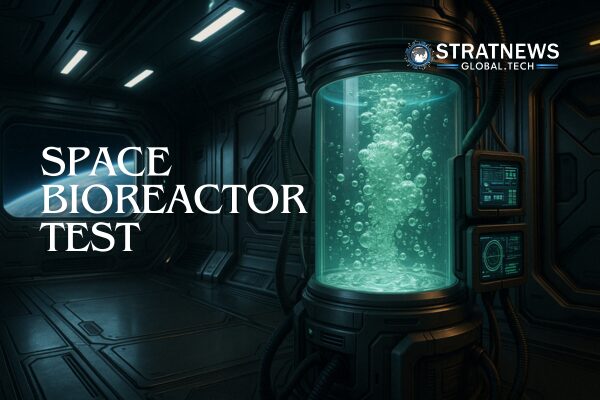UK Scientists Test Space Bioreactors to Feed Future Mars Missions
Feeding astronauts on a journey to Mars presents one of space exploration’s toughest challenges. With missions lasting years and every kilogram of cargo costing up to $20,000, scientists in the UK believe growing food, fuel, and even medicine during spaceflight could be the solution.
Cultivated Cells Could Replace Costly Cargo
“Astronauts consume between 0.5 and 1.5 kilograms of food per day. At around $10,000 per meal in launch costs, we must find sustainable alternatives,” said Dr Rodrigo Ledesma-Amaro, Director of the Bezos Centre for Sustainable Protein at Imperial College London.
Rather than shipping tonnes of supplies, researchers are exploring how to grow what astronauts need using bioreactors—devices that turn a few cultivated cells into mini factories that produce food, vitamins, and more.
Imperial’s work, backed by the Bezos Earth Fund, focuses on using microbial cells and biofoundries to produce essential supplies sustainably, both in space and on Earth.
SpaceLab Sends Yeast Bioreactor into Orbit
This innovative approach was tested in orbit on April 22, when Europe’s first commercial returnable spacecraft, Phoenix 1, carried Imperial’s experiment to space. Launched aboard a SpaceX Falcon 9 rocket from Cape Canaveral, the mission included a compact lab system called SpaceLab.
Developed by UK firm Frontier Space, SpaceLab is a “lab-in-a-box” weighing under one kilogram. It houses three experiments, including yeast cells producing a vitamin precursor, which can be harvested and consumed.
“This is a bioreactor growing yeast in microgravity, testing whether these cells can make useful compounds without Earth’s gravity,” explained Ledesma-Amaro. The experiment will help researchers reimagine how future bioreactors can function in space.
Bioreactors for Long-Term Space Living
The Phoenix 1 spacecraft also carries an inflatable atmospheric decelerator, designed to protect it during Earth re-entry. The system serves as both a heat shield and parachute, enabling safe splashdown and return of samples.
ATMOS Space Cargo, the makers of Phoenix 1, envision frequent, low-cost missions supporting in-space manufacturing, defence, and scientific research. “Eventually, we aim to build permanent, space-based bioreactors,” said Frontier Space co-founder Aqeel Shamsul.
As humans plan long-term settlements on the Moon and Mars, such bioreactors could be crucial to sustaining life. Ledesma-Amaro hopes future versions will produce a wide range of items—from biodiesel and dairy to vitamins and even vanilla ice cream.
with inputs from Reuters


